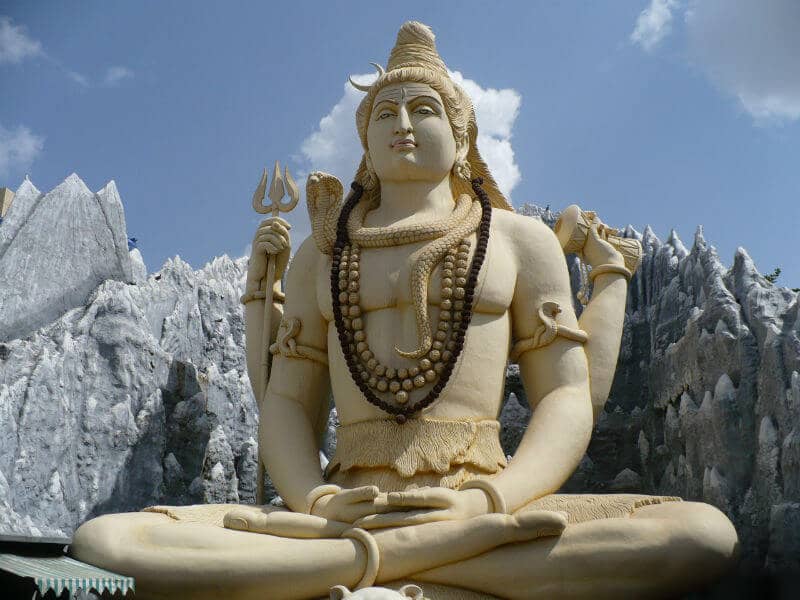Intellectuals seem to place jnana (knowledge) above devotion while admitting the validity of both, while Vaisnavism seems to hold to the opposite idea. Is the ultimate transcendent state such that this split can remain?
Bhaktas understand devotion (bhakti) to be the highest knowledge (jnana), whereas jnanis understand devotion to be a means to attain the highest knowledge. This is a subtle but important difference. Both notions have their place in transcendence, but bhaktas realize both knowledge and devotion in transcendence, while jnanis realize only knowledge. So if both are good, why give one up? I could go on, but it should be obvious which side of the discussion that I am on. This is, of course, a debate that has been going on since time immemorial. Ultimately individuals must resolve this question for themselves. Listen carefully to both sides and follow your heart (hint), not your head. Still, I feel that the bhaktas are winning the debate overall. Though jnanis often classify bhaktas as "less intelligent," it is hard to imagine anyone being more intelligent than great saints like Sri Ramanuja, Sri Madhvacarya, or Sri Caitanya--to name a few bhaktas. Still, one's degree of intelligence is dictated by his karma, so how much of a role can intelligence play in realizing God? According to Bhagavad-gita, sincerity plays a greater role in spiritual realization than does intelligence, na hi kalyana-krt kascid durgatim tata gacchati. Is the understanding of the "transcendental unity of religions" simply an intellectual perspective?
I think religions are already united in the broadest sense. All religious people are worshipping God according to their particular faith. Differences lie in the measure of one's faith and one's corresponding realization as to the nature of God. I think it is unrealistic to hope for more than this.
In the second chapter of Bhagavad-gita, Sri Krsna says that the wise do not lament for the living or for the dead. How does one not lament and still possess compassion for the suffering of others? Isn't compassion a form of lamentation?
The lamentation that the Gita considers to be ignorance arises from thinking of ourselves as material bodies. Knowledge of the soul, on the other hand, includes appropriate compassion for the plight of others. Such knowledge and the compassion it fosters can bring about a comprehensive solution to all suffering.
Don't become negatively preoccupied with these kinds of unimaginable details. Everything in scripture need not be taken literally. In Latin the word centi means one hundred and mill means one thousand, yet the centipede does not have a hundred legs nor does the millipede have one thousand legs. These insects are named such simply because they each have an amazing amount of legs. Similarly, when the different Brahmas are said to have 100, 1,000, 10,000, or more heads, this is a way of saying that their individual universes were progressively larger and more amazing.
Although the scripture sometimes speaks allegorically, the Vedic description of expanding material universes on multiple levels of existence, occupied by countless variegated species of plants, animals, human and supernatural beings, rings true to many. More amazing than the temporary material manifestation is the eternal world of Krsna, which is described as adhoksaja--beyond the mind. Beyond the mind anything can happen.
The essential message of this story about the Brahmas is that Bhagavan Sri Krsna is beyond the mind of everyone, regardless of how intelligent or powerful someone may be. Also, no one, not even Lord Brahma, can fully comprehend the universe in which one lives, what to speak of the entire material manifestation, which is but the maya-sakti (illusory energy) of Sri Krsna. This Krsna, who is worshipped in millions of universes by millions of Brahmas and is a mystery to even the greatest Lord Brahma, appears in Vrndavana as a simple cowherd boy--the darling of Nanda and Yasoda. What could be more wonderful and mind-boggling than this?
Rather than trying to comprehend every unimaginable detail with the tiny conditioned mind, aspiring devotees should learn to experience the essence of these stories through the association of advanced devotees. Such association breathes life into the unimaginable.
In one place in scripture it says that God does not interfere with the law of karma, but in another place it says that Krsna is directly involved with the lives of his devotees. How can both be true, and is it true for aspiring devotees who might not yet be considered saints? Does Krsna create circumstances in their lives to bring them closer to him?
In Bhagavad-gita 9.29 Krsna says he is equal to everyone, but in the same verse he distinguishes those who are devoted to him from others by saying, ye bhajanty tu mam bhaktya mayi te tesu capy aham: that he dwells within them. He distinguishes his devotees from non-devotees in a number of other places in the Gita as well, promising in 9.22 to supply the needs of his devotees and in 7.23 to bring them close to him. In this regard the verse paritranaya sadhunam (4.8), where Krsna says he will deliver the pious, is also significant. In Gita verses 18.21-22 Krsna says plainly that no one is dearer to him than the devotee who explains the secrets of bhakti to others.
These references from Bhagavad Gita show that Krsna treats his devotees specially, so much so that in Gita 9.30 he says that his devotees should be considered saintly even if they do something wrong. Thus God is definitely involved in the lives of aspiring devotees, and he does make arrangements to bring them closer to him.

